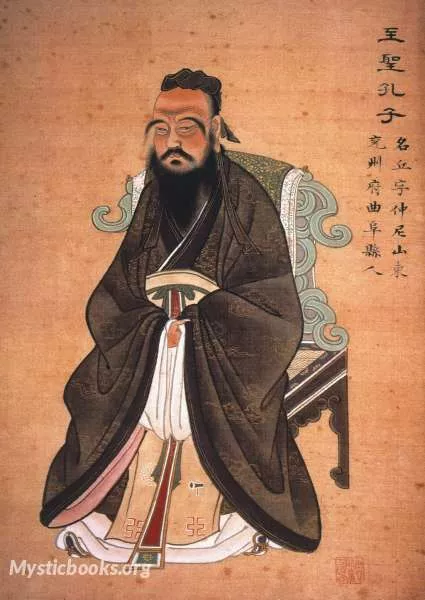
Timeline
Title
Country/Nationality
Confucius 孔子
Confucius (551–479 BCE) was a Chinese philosopher and politician of the Spring and Autumn period who was traditionally considered the paragon of Chinese sages.
The philosophy of Confucius—Confucianism—emphasized personal and governmental morality, correctness of social relationships, justice, kindness, and sincerity. Confucianism was part of the Chinese social fabric and way of life; to Confucians, everyday life was the arena of religion. His followers competed successfully with many other schools during the Hundred Schools of Thought era only to be suppressed in favor of the Legalists during the Qin dynasty. Following the victory of Han over Chu after the collapse of Qin, Confucius's thoughts received official sanction in the new government. During the Tang and Song dynasties, Confucianism developed into a system known in the West as Neo-Confucianism, and later New Confucianism.
Confucius is traditionally credited with having authored or edited many of the Chinese classic texts including all of the Five Classics, but modern scholars are cautious of attributing specific assertions to Confucius himself. Aphorisms concerning his teachings were compiled in the Analects, but only many years after his death.
Confucius's principles have commonality with Chinese tradition and belief. With filial piety, he championed strong family loyalty, ancestor veneration, and respect of elders by their children and of husbands by their wives, recommending family as a basis for ideal government. He espoused the well-known principle "Do not do unto others what you do not want done to yourself", the Golden Rule. He is also a traditional deity in Daoism.
Confucius is widely considered as one of the most important and influential individuals in human history. His teaching and philosophy greatly affected people around the world and remain influential today.
It is thought that Confucius was born on September 28, 551 BCE, in Zou (, in modern Shandong province). The area was notionally controlled by the kings of Zhou but effectively independent under the local lords of Lu, who ruled from the nearby city of Qufu. His father Kong He (or Shuliang He) was an elderly commandant of the local Lu garrison. His ancestry traced back through the dukes of Song to the Shang dynasty which had preceded the Zhou. Traditional accounts of Confucius's life relate that Kong He's grandfather had migrated the family from Song to Lu.
Kong He died when Confucius was three years old, and Confucius was raised by his mother Yan Zhengzai in poverty. His mother would later die at less than 40 years of age. At age 19 he married Qiguan (亓官), and a year later the couple had their first child, their son Kong Li (孔鯉). Qiguan and Confucius would later have two daughters together, one of whom is thought to have died as a child.
Confucius was educated at schools for commoners, where he studied and learned the Six Arts.
Confucius was born into the class of shi (士), between the aristocracy and the common people. He is said to have worked in various government jobs during his early 20s, and as a bookkeeper and a caretaker of sheep and horses, using the proceeds to give his mother a proper burial. When his mother died, Confucius (aged 23) is said to have mourned for three years, as was the tradition.
Burdened by the loss of both his son and his favorite disciples, he died at the age of 71 or 72. He died from natural causes. Confucius was buried in Kong Lin cemetery which lies in the historical part of Qufu in the Shandong Province. The original tomb erected there in memory of Confucius on the bank of the Sishui River had the shape of an axe. In addition, it has a raised brick platform at the front of the memorial for offerings such as sandalwood incense and fruit.
Books by Confucius 孔子
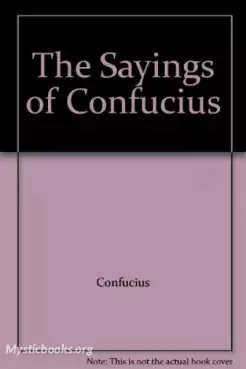
The Sayings of Confucius or The Analects of Confucius
A treasure trove of wise and pithy sayings, reflections on education, family values, the ideal human being, life and living, politics, art, culture and timeless wisdom, The Sayings of Confucius is indeed an invaluable addition to your bookshelf. Eve...
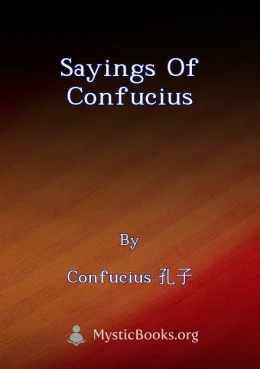
Sayings of Confucius
Promoting virtues such as filial devotion, compassion, loyalty, and propriety, these dialogues between the ancient Chinese philosopher Confucius and his disciples comprise the crux of Confucianism. (Summary by Andrea L).A Chinese version is available...
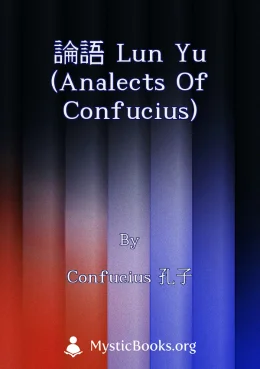
論語 Lun Yu (Analects of Confucius)
孔子(公元前551年9月28日-前479年),子姓孔氏,名丘,字仲尼,鲁(今中國山东曲阜)人,中国春秋末期的思想家和教育家。孔子是中华文化中的核心学说儒家的首代宗師,集華夏上古文化之大成,在世時已被譽為“天縱之聖”、“天之木鐸”,是當時社會上最博學者之一,並且被...
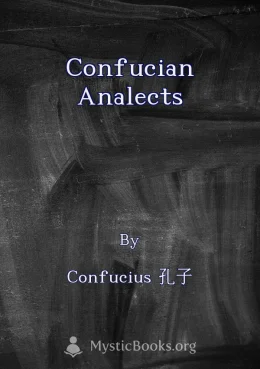
Confucian Analects
The Analects, a collection of sayings and anecdotes attributed to Confucius and his disciples, offer a glimpse into the life and teachings of this influential philosopher. The text explores themes of virtue, ethical conduct, social harmony, good gove...
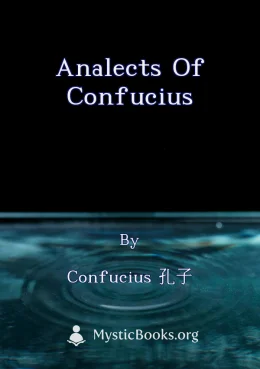
Analects of Confucius
The Analects of Confucius, also known as the Lunyu, is a collection of sayings and anecdotes attributed to the Chinese philosopher Confucius and his disciples. It was compiled during the Spring and Autumn and Warring States periods (roughly 475–221 B...